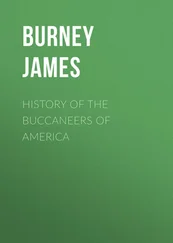Guangkui raised empty palms. “I don’t know what happened. The taster didn’t report anything wrong with it.”
Xiaobo held her head in one hand, trying to unravel the problem. “Either the pharmacist or the taster is working for Lady Zheng.”
“Neither of them has visited her. My guards have checked.”
“Then we’re looking for someone who is loyal to her and is already employed in the Emperor’s palace.”
“I don’t see how any servant could ignore orders from the Embroidered Guard.”
They exchanged a glance and knew the answer. “Unless they’re receiving different orders from Lady Zheng’s father,” gasped Xiaobo. “He must have told the taster to skip one remedy.”
Guangkui’s mouth tensed with apprehension. “If he’s involved, I can’t help you. He outranks me.”
Her eyes lit up with an idea. “But your mother outranks him.”
He frowned. “What are you planning now?”
She stood up, thinking fast. “Do you keep anything written by your mother?”
“I think so.”
“Good. I’m going to need you to lend me one of those papers. Something like a letter. It’ll be more useful the longer it is. If this goes well, I can get that man out of our way.”
Morning, October 4 (Gregorian), 1620
Beijing
The Emperor lived.
A public celebration was decreed in the capital, with visits made to the Forbidden City temples by the royal family, although the intensity of the festivities was somewhat tempered by the recent memory of the coronation and its ensuing illness. For most of the day, Tsunenaga remained lodged in a soldier barrack, as palace advisors had deemed him undeserving of an official guest room. He spent his hours between prayer and boredom, watched by guards personally selected by Guangkui, until a messenger came and spoke to the guard on duty.
Tsunenaga was taken out and escorted into the palace, where he met with Xiaobo. She explained that he had nothing to worry about; soldiers surrounded him only because the Emperor had asked to see him.
They were informed that the audience would be held in the Hall of Mental Cultivation, one of the minor buildings surrounding the main palace. He entered accompanied by Xiaobo and a clerk from the Ministry of Rites, who instructed him, with the help of her translation, on the proper greeting he should give. He did as told: he bowed, he recited the salutation, and sat in the middle of the hall, at the prescribed distance from the Emperor’s seat.
Seeing Taichang in full health gave him a sense of unrealness; this couldn’t be the same person as that pitiful mass of filth he’d seen a mere week before. In front of him sat a man who knew his assuredness could overpower any who saw his face, save for this visitor, whose first memory of him had been etched indelibly beneath the smell of incense.
“Are you the man who saved my life?” Xiaobo transmitted the meaning into Tsunenaga’s ear.
“It pleased the Heavenly Lord to do it, Your Majesty.” She translated back to the Emperor, beaming with pride.
“I called for you because I thought I should give you an appropriate welcoming. I wasn’t conscious when you visited my quarters, but your prayers brought me back from the brink of death.”
“I am blessed to have been an instrument of the Heavenly Lord.”
“However, it is my understanding that you arrived in China for other reasons. You could have been executed if my agent hadn’t found you first. Why did you disobey the ban on Japanese people in Chinese ports?”
“I did not plan to come here, Your Majesty. I was headed for my hometown, Sendai. Now I am inclined to believe there was a providential force pushing me here.”
The Emperor did not reply immediately, for the thought that he’d been favored by spiritual powers alien to his country’s tradition made him feel uncertain of his footing in the world. His lineage kept the throne with the consent of Heaven; if it became common knowledge that he’d resorted to barbarian rites, his legitimacy could be open to question. Claiming the mandate of Heaven while keeping a debt to a god whose priests had been expelled from the capital by his father was an anomaly, a halfway state that couldn’t last. He needed to find out how far his debt reached. “I want to reward you for the service you’ve done to China.” He caught the beginning of a glimmer of hope in Tsunenaga’s eyes, and clarified, “Anything except leaving China.”
When Xiaobo whispered the translation, Tsunenaga felt as if the main branch of a tree had been cut off inside of him. Seven years of wandering had just been thrown away. His report, which could provide the sole defense against the conquest of Japan, would not be received. His wife and his son would not see him again. With barely any voice and no expectations, he pled, “May I at least write letters to my lord and my family?”
The Emperor shook his head, and before Tsunenaga could inquire any further, Xiaobo raised a hand to signal him to stop. It would be a serious breach of protocol to force the Emperor to explain himself, although she knew, and she promised herself she’d explain to him afterwards, that the Japanese government must not find out that one of their samurai was effectively a prisoner; the Great Ming had enough enemies already.
Tsunenaga took a resigned breath. He saw no point in further conversation.
“What do you ask in return?” insisted the Emperor.
The question shook Tsunenaga. Was there any important thing left in the world? Other than fulfilling his duty to the lord of Sendai, what else mattered? He saw the answer and spoke. “At least allow the Jesuits back.” Xiaobo let out a gasp, which she hoped would be forgotten as soon as she relayed the shocking words to the Emperor. “Grant them full freedom to preach, to build churches, to make converts and ordain new priests from among the citizens of the empire.” She wasn’t sure how the Emperor was going to react to that, but she was sure she wouldn’t have aspired to that much for her own religion. “And they must be given the opportunity to teach their doctrine to Your Majesty.” She stared at Tsunenaga, aghast at his boldness.
“What did he say? Speak!”
Dutifully, she translated the last sentence, and Taichang’s mouth tightened before turning into a half-smile.
“Done,” he replied. “Anything else?”
Xiaobo kept her eyes aimed at the floor, not wishing to give even the slightest appearance of influencing the response. Lifting the ban on the Jesuits was a step in quite a different direction from what she’d expected. Her hopes of more space for Islam began to quaver. Tsunenaga noticed her distress, but he had no idea of her own stakes in the matter, and made a riskier assumption. “If I may make another request of Your Majesty’s generosity, I think some consideration should be given to ending the custom of binding women’s feet.”
Xiaobo suppressed a yelp of horror and started to quickly think of alternatives for what to say instead. She would have preferred to remain silent, but the towering presence of her sovereign compelled her to speak. After a burst of mental effort that she felt interminable, she said, “An equal measure of rights should be granted, without distinction, to every religion that is practiced throughout the Great Ming.”
Giving no sign of having sensed any deception, Taichang said, “I’ll have to think it over.”
Instead of translating that, she told Tsunenaga, “I just saved your life.”
The Emperor ordered food to be brought, and the conversation turned to more mundane affairs. Xiaobo found the seasoning pleasant, both sweet and spicy. Tsunenaga was questioned on his homeland, his family, and the finer points of his duties as a member of the samurai class. Xiaobo took the chance to learn more about Japanese customs. Even at an occasion of low danger, she remained alert.
Читать дальше












